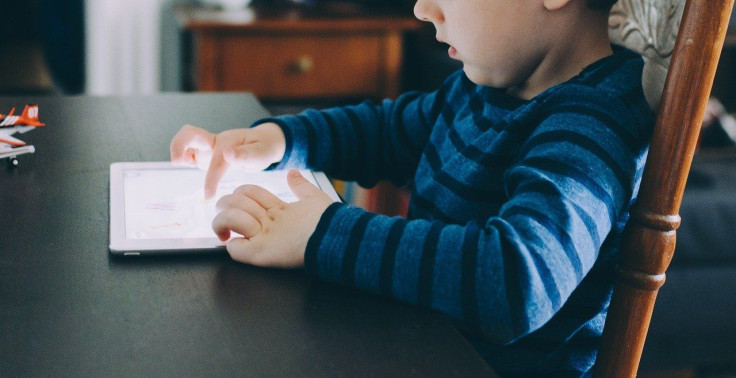Using Screens To Calm Your Child May Have Long-Term Consequences, Study Finds
KEY POINTS
- Frequent use of electronic devices to calm kids was associated with increased emotional dysregulation
- It's especially problematic for boys and those struggling with emotion regulation
- Alternative calming strategies instead could help children develop emotion regulation
Is there really harm in giving children mobile devices to help them calm down? It may actually hurt their emotion regulation down the road, a new study finds.
Many parents are familiar with the scenario. When their young child starts to get fussy or begin to throw a tantrum, handing them a tablet or a smartphone does the trick of tempering them down. While it seems like a convenient fix for busy parents, how does this affect children in the long run?
In the new study, published Monday in JAMA Pediatrics, researchers sought to find whether using mobile devices to calm young children's behavior and emotion has long-term impacts on their "executive functioning (EF) and emotional reactivity."
To find out, they looked at 422 English-speaking parents and their 422 children aged three to five years old who participated in the study from August 2018 to January 2020. Parents reported how often they used mobile devices to soothe their kids when they were upset, and the researchers analyzed the children's EF and emotional reactivity throughout a six-month period.
They found that using electronic devices to calm children down was associated with increased emotional dysregulation in the kids, the University of Michigan noted in a news release. Particularly affected were the boys and the children who were already struggling with emotion regulation.
The findings suggest that frequently using mobile devices to calm kids down "should be avoided."
The problem with this technique, the researchers explained, is that by giving the children the devices, it may be displacing the children's chances to actually learn and develop proper emotion regulation strategies over time. And the habit just gets more difficult to break as time goes on.
"Using mobile devices to settle down a young child may seem like a harmless, temporary tool to reduce stress in the household, but there may be long-term consequences if it's a regular go-to soothing strategy," lead author of the study, Jenny Radesky of the University of Michigan Health said in the release. "The more often devices are used, the less practice children—and their parents—get to use other coping strategies."
"(T)herefore, pediatric health care professionals may wish to encourage alternate calming approaches," the researchers wrote.
For instance, taking the time to name the emotion that the child is feeling may help make them feel like they are understood. And by staying calm through it, too, the parent can show the child that emotions can be managed, Radesky noted.
Another possible solution, she said, would be to use "sensory techniques." Depending on the child, this could vary from pushing them on a swing or listening to music, to very simply giving them a hug.
Whatever alternative strategy one uses, the idea is to help the children deal with the emotion instead of just distracting them.
"All of these solutions help children understand themselves better and feel more competent at managing their feelings," said Radesky. "It takes repetition by a caregiver who also needs to try to stay calm and not overreact to the child's emotions, but it helps build emotion regulation skills that last a lifetime."

© Copyright IBTimes 2025. All rights reserved.






















